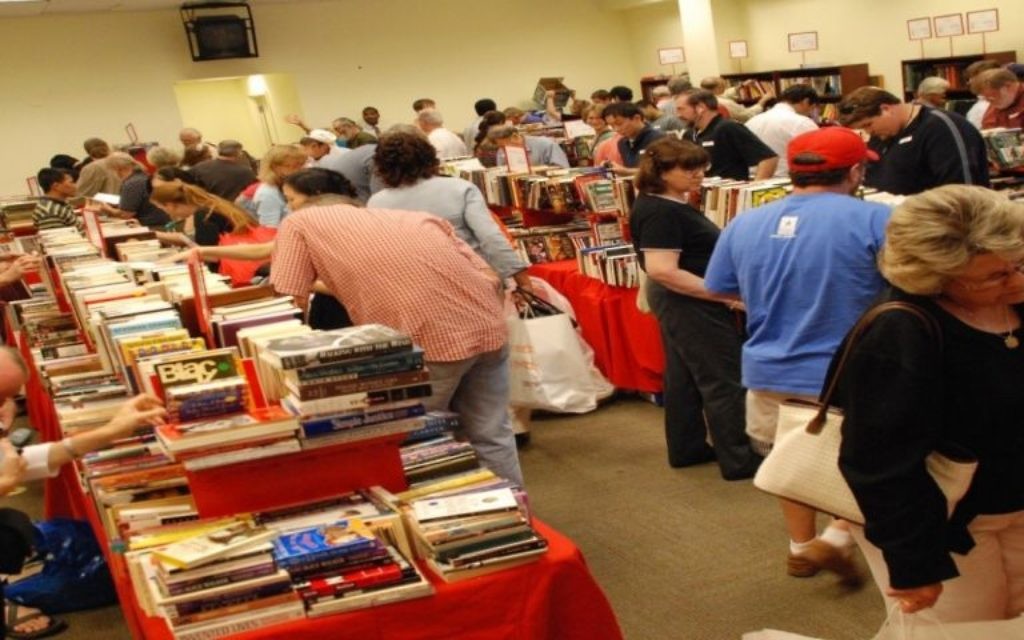I’d Like You to Meet Some American Students
Out of the mouths of babes at a public elementary school.
I’ve been helping out in the media center at a public school, a veritable United Nations in its diversity. Let me introduce you to some of the students.
Two Girls
School is officially over for the day. I’m shelving books when two dark-haired preteens come in. There’s step practice after school, so they have a few minutes to spare.
As they scout the fiction section, we talk. They’re best friends who are both bright, respectful and charming.
Get The AJT Newsletter by email and never miss our top stories Free Sign Up
“Where are you two from?” I ask.
“Palestine,” one answers.
“Exactly where in Palestine?”
“Haifa.”
“Haifa’s in Palestine?” Good grief!
“Yes, but my parents said if we work hard in America, we’ll have better lives. We study very hard.”
I’m told that the Muslim students do well at this school.
A Boy
The males in this class seem to like sports, predatory animals and humor. I’m surprised when a Hispanic boy asks me for a book about paper. I’m not sure what he means.
“Do you want to learn how to make paper?”
“No. I want this.” He uses his hands to demonstrate what he wants.
“You want to fold paper to make things?”
“Yes, folding paper. My mother teaches me.”
“You mean origami?”
He is delighted that I know the word. “You know origami?”
He checks out an origami and crafts book and runs to catch up with his class.
A Boy
I am busy reshelving, while the librarian helps students decide what to read. A boy who already has books under his arm spots a tome on my cart, “Electricity,” with a lightning bolt on the cover.
“A book about electricity! Can I take it?”
It’s a pretty sophisticated book; however, I hand it to him. We look at a few pages. It’s loaded with pictures and descriptions of experiments and bios of famous scientists.
“You really like science, don’t you?” I ask.
“I love science!”
From his nontrendy clothing and fuzzy haircut, I doubt he has a good microscope, a vacuum pump or lab tools.
“Do you do science at home?”
“My mom and I do stuff in the kitchen. She does experiments with me.”
“Do you like math?”
“How can I do real science if I don’t like math?”
“What do you do on the weekends?”
“I’m lucky because my dad’s a security guard at a couple of museums, so I get to go in free all the time. My brothers, too.”
“You really are lucky! I think it’s a lot of fun in your house.”
A Girl
I carry my cellphone in a pouch. Somehow it falls out among the shelves, and I only notice it’s missing at the end of the day.
“Oh, no, I dropped my cellphone someplace!” I blurt out.
The students are getting in line, ready to leave, when a sylphlike Asian girl runs back.
“You lost your phone?”
“It’s in this room. I’ll find it,” I assure her.
“I’ll help you. My father said phones cost a lot of money.”
She methodically starts to search the shelves, then her teacher asks for my number and calls it. A few students hear it and head to rescue my phone from a far corner of the room. The girl gets there first and ceremoniously hands it to me.
I thank the students, paying special attention to the girl, who is visibly relieved. Obviously, my profligate behavior needs monitoring.
“Be careful with your phone!” she cautions. “But I’ll help you if you lose it again.”
Do you see a thread running through these four incidents? I do.
Here in the U.N. of terrific kids, I suspect a powerful combo is at work: clear family values, expectations and modeling. Parenting.





comments